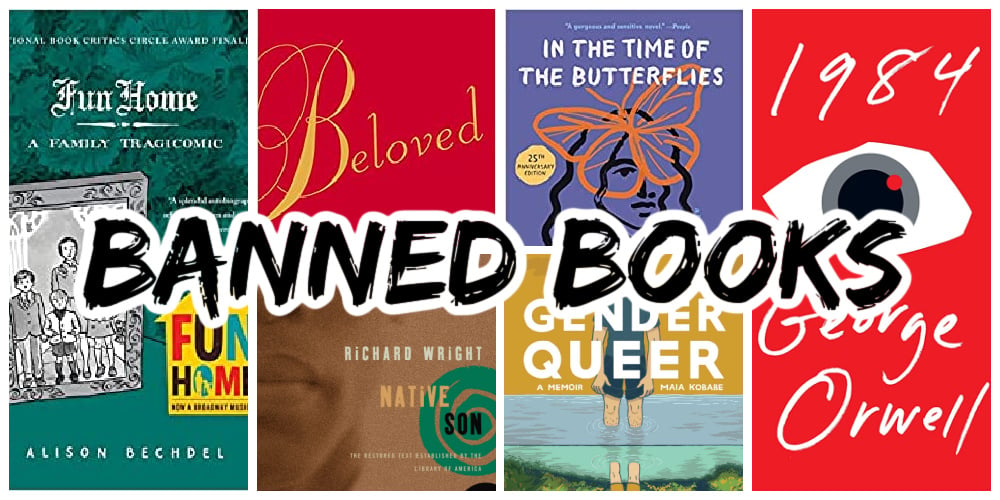
This year’s senior English class recently embarked on a project to investigate book banning – why and how are books banned, and what are the cultural implications of banning books? As a group, they read several articles about banned books, including Banned in the USA: The Growing Movement to Censor Books in Schools, and discussed their opinions on what it means to have materials censored in a school or community. They discussed both the historical context of books that have been banned in the past, as well as current examples of books that are banned or censored.
After gathering a sense of cultural context, they selected a book to read together that has been widely banned in a number of schools and communities. Maia Kobabe’s Genderqueer has been challenged, debated, and banned, as it explicitly chronicles a young person’s journey discovering themselves and transitioning genders. Our students read the graphic novel, discussed its many themes, looked at why and how it might end up on a banned books list, and wrote essays answering key questions about the text.
Finally, students paired up and created campaigns for or against banning books, taking the perspective of an advertising firm. They created a firm, identified who would be their audience, and chose their mode of relaying their message from a variety of options. Some students created billboards, others made podcasts, and still others wrote and produced short commercials. Students practiced critical thinking skills, teamwork, and creativity; they shared their work with the class in a culminating presentation.
Eden (class of 2023) described her experience of the unit this way: “The banned books unit allowed our class to dive deeper into the controversy of why books are being banned and how the reasoning behind these actions affect people's views on certain communities and ethnicities. Inclusivity of the LGBTQ+ community and BIPOC in books are the central reasons for these bannings, which is most detrimental to the minds of youths. By being given the opportunity to create our own campaigns on this topic, we were able to gain an understanding of how to spread awareness to others about it.”
Seniors appreciated the chance to engage with this topic in a variety of ways and walked away from the unit with a deep understanding of the perspectives involved in the debate around censorship in this country. As we aim to prepare students to live productively in a complicated world, we value units such as this, which encourage them to grapple with issues that extend far beyond their classroom walls.

